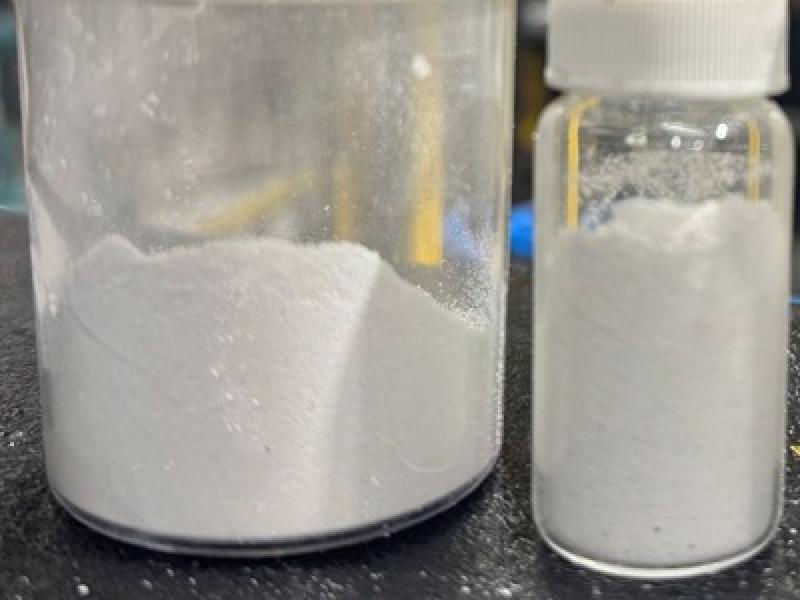
Alexander First Nation is partnering with First Nation Power Development (FNpower), Concord Green Energy (a subsidiary of Concord Pacific), and the Canada Infrastructure Bank (CIB) to develop the Tilley Solar Power plant in Newell, Alta., 200 kilometres southeast of Calgary.
Financing on the project closed early this month when CIB agreed to loan $33 million toward the $52-million Tilley Solar plant, paving the way for Indigenous community ownership of a renewable energy facility.
"I would like to thank the CIB for their tremendous support and dedication to the Tilley Solar Project," Alexander First Nation Chief George Arcand Jr. said in a release.
"This signifies the economic viability of the project for our Nation for many years to come. With that comes long-term careers/jobs for our Nation members . . . I am beyond excited to see the end product as a green energy source which is important to us as First Nations people who are stewards of the land."
Under the terms of the agreement, Alexander First Nation retains 51 per cent ownership of the Tilley project through a partnership entity, Alexander FN Power LP, owned jointly by separate investment arms of Alexander First Nation and FNpower. Further, Alexander First Nation can exercise a buyout option from FNpower to acquire the entire 51 per cent stake in the solar farm within the next three to five years.
Once the 23.6-megawatt Tilley solar farm facility goes online, it is expected to provide the Alexander First Nation with a long-term revenue stream that will create jobs, generate new investment opportunities and help fund community housing for tribal members.
Importance of Indigenous control and economic autonomy
By virtue of the 51 per cent controlling ownership stake, Alexander First Nation is expected to play a decisive role in the development of the Tilley Solar Power project.
The project also paves the way for similar projects that demonstrate the ability of Indigenous peoples to take control of their economic development, as well as initiate sustainable programs that provide environmental safeguards to tribal lands and reinforce these communities' historic connection to nature.
"It is with great pride that we were able to complete this investment," Ian Arcand, chief executive officer of Alexander Business Corporation, said in a release. "We look forward to more clean energy projects as we see combining environmental stewardship and economic participation as the future business model for our Nation."
The Tilley solar farm is expected to create over 280 full-time jobs at the peak of construction, an estimated $14 million in direct labour income, and an additional $6 million in indirect labour income.
Comprising of 69,450 fixed-tilt solar photovoltaic panels, the facility should reduce greenhouse gas emissions in Alberta by approximately 14,200 tonnes per year.
With the support of FNpower, an Indigenous-owned company seeking to increase First Nations ownership and participation in the renewable energy industry, Alexander First Nation intends to use the proceeds of the Tilley solar farm to address severe social problems within its community.
"Projects like this will . . . create longer-term cash flows (giving us) the ability to stretch our resources so we can start to entertain taking on bigger projects like housing, drugs and alcohol (abuse), and mental health issues in the community," Arcand Jr. said at an April 10 ceremony in Vancouver to mark the signing of the deal.
The Indigenous Community Infrastructure program
The $33 million from the CIB was the final piece of the financial puzzle needed to greenlight the Tilley project that is part of CIB's concerted effort to support Indigenous community initiatives.
"Directly impacting the Alexander First Nation through job creation and long-term economic prosperity, our investment in the Tilley Solar Project will help foster economic reconciliation while advancing a more sustainable grid," Ehren Cory, Canada Infrastructure Bank CEO, said in a release.
"Our collective approach to project development sets an example for future partnerships of Indigenous leadership in renewable projects that can be replicated across Canada."
Getting a seat at the table
According to Arcand, the chance to own a controlling stake in the Tilley solar farm ends years of frustration trying to develop Indigenous-led industries.
"Everybody in the First Nations is saying that it's about time we got to be involved in the determination of our (economic destiny)," he said in an interview with Sustainable Biz Canada.
"For so long, if you listen to our elders, when we signed treaties with the government we were always meant to share the wealth. So how come we've never shared this whole time? Now we're starting to share and participate, which is great for us," Arcand said. "The sky's the limit for us in terms of this opportunity.
"For years we've been looking for a seat at the table. Now we're finally there and in a position to invest in green projects like solar farms and carbon sequestering. Since there is a requirement for Indigenous participation in these kinds of projects, Alexander Business Corporation has a mandate to create our own business entities that will provide long-term financial stability for our community."
Building viable economic infrastructure on Indigenous lands
Under the auspices of Alexander First Nation, Arcand expects to also build a solar farm on tribal land (it was decided to build the Tilley plant further south due to a higher number of sunlight hours) which will provide free power to the community.
After previously serving as the federal government's regional director of Indian affairs as well as developing First Nation-owned business enterprises, Arcand is now committed to leading the Alexander Business Corporation (and working with his third cousin, Alexander First Nation Chief George Arcand Jr.) in its mission to establish viable enterprises and improve living conditions on Alexander First Nation land.
"Like most other First Nations peoples, we're very far behind in terms of housing and infrastructure services," Arcand explained. "Everybody thinks that the Indian Affairs department (now Crown-Indigenous Relations and Northern Affairs Canada and Indigenous Services Canada) is giving so much money to native peoples - but it's just enough to survive. It's just enough not to starve.
"That's part of the reason why we created Alexander Business Corporation so we can generate revenue, build infrastructure, and build good homes on tribal land. Our long-term strategy is to eventually convince more young members of the band to stay and become active members of the community and help grow our Nation."
In keeping with its mission, Alexander Business Corporation is partnering with three other First Nations communities - Alexis Nakota Sioux Nation, Enoch Cree Nation and Paul First Nation - on three major carbon sequestration projects in the Edmonton area (Alexander First Nation is 65 kilometres northwest of Edmonton).
"We've already signed MOUs (memorandums of understanding) with Enbridge, Wolf Midstream, and Capital Power where we're going to have a 25 per cent ownership stake in these projects . . . That's all part of our goal to invest in sustainable projects that help make mother earth a little bit better every day."










